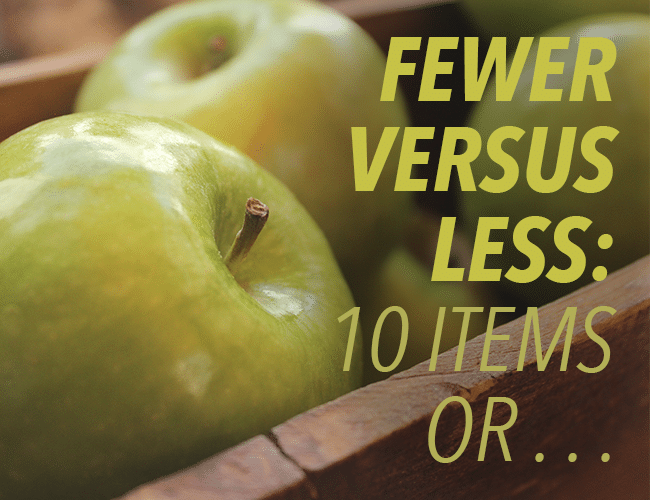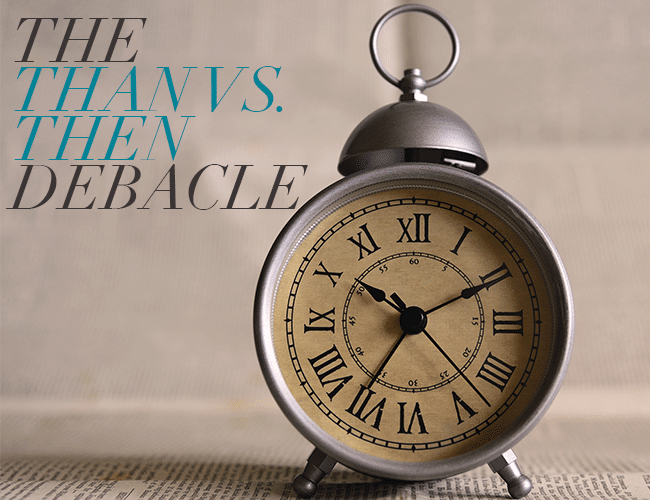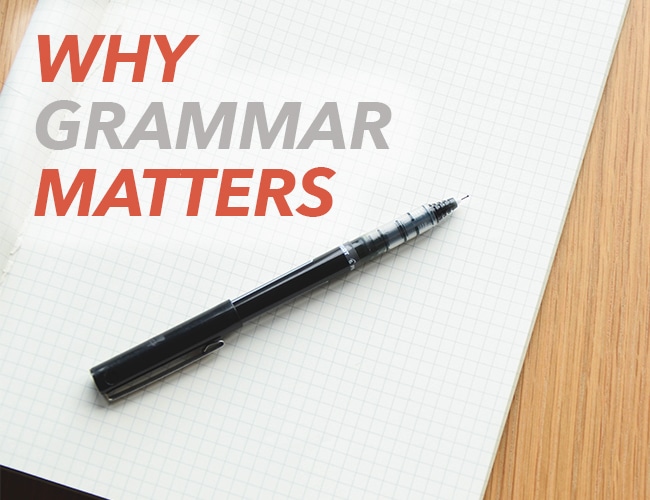
by Liz Bureman |
Let’s say you’re living the dream and writing a chapter of word problems for a grade school math textbook. You’ve got a girl named Mandy who has sixteen apples. You’ve got a guy named Frank who has four fewer apples than Mandy.
Wait. Is it four fewer or four less?
Let’s discuss, shall we?

by Liz Bureman |
Sometimes we need to revisit the basics. We should never assume that we’re above them; there’s a reason that the saying “pride comes before a fall” is still common.
And there is little that brings a writer’s soaring and magnificent prose crashing back to earth faster than using the wrong form of there/their/they’re.
Today, let’s look at these three very different words.

by Liz Bureman |
Sometimes you have to get back to basics. All writers are guilty of making mistakes at some point, and they kick themselves for months after an astute reader notices that they added one too many o’s to their “to.” Once that’s in print, you can’t take it back.
So today, I’d like to draw attention to one common mistake so that you will hopefully never have to take it back: the then-vs.-than debacle.

by Liz Bureman |
If there’s one significant thing that Joe and I have historically disagreed on, it’s the role of grammar in a writer’s toolbox. We complement each other well because as much as I love grammar and sentence structure, he equally embraces the dismissal of commas and the implementation of run-on sentences for art’s sake. When you get down to brass tacks though, I have to admit that he kind of has a point: grammar is somewhat arbitrary.






